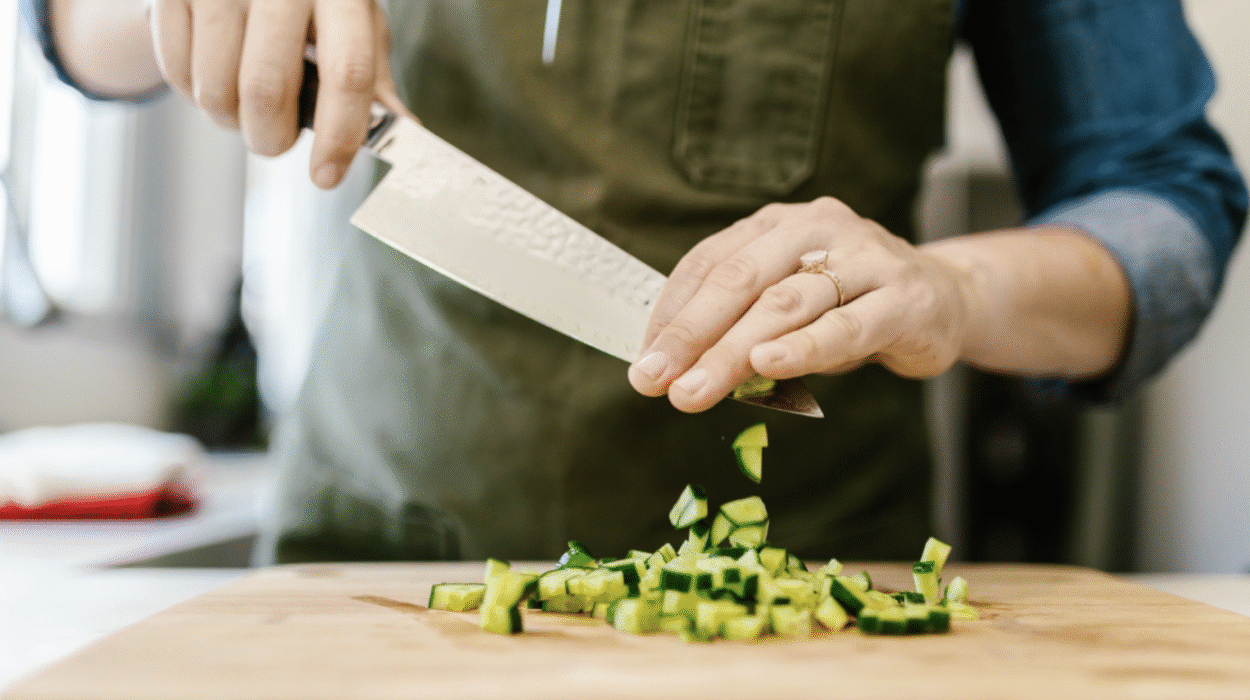In the world of professional cooking, precision and efficiency are paramount. This is where German knives for sous chefs come into play. Known for their exceptional quality and durability, these knives have become indispensable tools in the kitchens of sous chefs around the globe.
Understanding the significance of German knives in the culinary world is crucial for any aspiring sous chef. These knives are not just cutting tools; they are a testament to craftsmanship and tradition. In this comprehensive guide, we will explore why German knives are favored by sous chefs and how they can enhance your culinary skills.

Why German Knives Are Preferred by Sous Chefs
Craftsmanship and Quality
German knives are renowned for their superior craftsmanship. Brands like Wsthof and Zwilling have been perfecting their knife-making techniques for centuries, resulting in products that are both reliable and long-lasting. These knives are forged from high-quality stainless steel, ensuring they remain sharp and resistant to corrosion.
Ergonomic Design
The design of German knives is tailored for comfort and ease of use. Their ergonomic handles provide a secure grip, reducing the risk of accidents in a busy kitchen environment. This thoughtful design is particularly beneficial for sous chefs who spend long hours preparing intricate dishes.
Versatility in the Kitchen
Sous chefs require tools that can handle a variety of tasks, from chopping vegetables to slicing meats. German knives are incredibly versatile, making them suitable for a wide range of culinary applications. Whether you need to perform delicate cuts or tackle tougher ingredients, these knives deliver consistent results.
Types of German Knives Essential for Sous Chefs
The Chef’s Knife
Often considered the most important knife in any kitchen, the chef’s knife is a must-have for sous chefs. Its broad blade and sharp edge make it perfect for chopping, slicing, and dicing various ingredients. A high-quality German chef’s knife is both an investment and a necessity for serious culinary professionals.
The Paring Knife
For precision tasks such as peeling and trimming, a paring knife is indispensable. German paring knives are known for their sharpness and durability, allowing sous chefs to perform intricate tasks with ease.
The Bread Knife
No kitchen is complete without a reliable bread knife. German bread knives feature a serrated edge that effortlessly slices through crusty loaves without crushing them, making them perfect for preparing sandwiches and other bread-based dishes.
Maintaining Your German Knives
Proper Cleaning Techniques
To ensure the longevity of your German knives, proper cleaning is essential. It’s recommended to wash them by hand with mild soap and water, then dry them immediately to prevent rusting. Avoid using abrasive materials that can damage the blade.
For more detailed cleaning tips, you can refer to this guide on how to clean your Wsthof knives.
Sharpening and Honing
Regular sharpening and honing are crucial for maintaining the sharpness of your knives. Use a honing steel to realign the blade’s edge, and invest in a quality sharpening stone or electric sharpener for periodic sharpening.
Safety Tips for Using German Knives
Handling with Care
Always handle your knives with care to prevent accidents. Keep your fingers clear of the blade’s path, and use a cutting board to maintain control over your cutting motions.
For more safety tips, visit our German knife safety tips.
Storing Your Knives Safely
Proper storage is essential to keep your knives in top condition. Use a knife block, magnetic strip, or blade guards to protect the blades and prevent accidents.
The Role of German Knives in Modern Cuisine
Influence on Culinary Techniques
German knives have significantly influenced modern culinary techniques. Their precision and versatility allow chefs to explore new cooking methods and create innovative dishes.
Learn more about how German knives have impacted cooking techniques here.
Adapting to Global Cuisines
With globalization, sous chefs are exposed to a wide variety of cuisines. German knives are adaptable to different cooking styles, making them invaluable tools for chefs who experiment with diverse culinary traditions.

FAQs
Are German knives better than Japanese knives?
Both German and Japanese knives have their unique advantages. German knives are known for their durability and versatility, while Japanese knives are praised for their precision and lightweight design. The choice depends on personal preference and the specific tasks at hand. For a detailed comparison, check out this article.
How often should I sharpen my German knives?
It’s recommended to hone your knives before or after each use to maintain their edge. Sharpening should be done every few months, depending on usage. Regular maintenance will prolong the life of your knives.
Can I use my German knives for butchering?
Yes, German knives are suitable for butchering tasks. Their robust construction makes them ideal for cutting through tougher meats and bones. For specialized butchering knives, you can explore this guide.
This article contains affiliate links. We may earn a commission at no extra cost to you.


